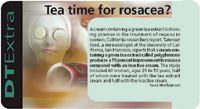- Acne
- Actinic Keratosis
- Aesthetics
- Alopecia
- Atopic Dermatitis
- Buy-and-Bill
- COVID-19
- Case-Based Roundtable
- Chronic Hand Eczema
- Chronic Spontaneous Urticaria
- Drug Watch
- Eczema
- General Dermatology
- Hidradenitis Suppurativa
- Melasma
- NP and PA
- Pediatric Dermatology
- Pigmentary Disorders
- Practice Management
- Precision Medicine and Biologics
- Prurigo Nodularis
- Psoriasis
- Psoriatic Arthritis
- Rare Disease
- Rosacea
- Skin Cancer
- Vitiligo
- Wound Care
Article
Final phase 3b results demonstrate efalizumab long-term efficacy, safety
Efalizumab was probably best administered as chronic therapy to maintain control of this chronic inflammatory disease.

"This is the longest continuous study of biologic therapy for psoriasis, and Genentech, the industry sponsor, should be applauded for showing clinicians how to use efalizumab over the long-term," says Dr. Leonardi, a study investigator and associate clinical professor of dermatology at St. Louis University Medical School, St. Louis. "We learned from earlier studies that efalizumab was probably best administered as chronic therapy to maintain control of this chronic inflammatory disease. We know from the patients who completed this trial that it can be used in that manner successfully with continued favorable safety."
Patients could enroll to participate in the open-label, maintenance treatment study if they achieved a Psoriasis Area and Severity Index (PASI) improvement of at least 50 percent (PASI-50) or static Physician's Global Assessment grading of "mild," "minimal" or "clear" after 12 weeks of onceweekly subcutaneous 2 mg/kg. The study entered 339 patients, of whom 290 began maintenance treatment with efalizumab 1 mg/kg/wk. A total of 151 patients completed 33 months of maintenance therapy. During the last three months of the phase 3b study, patients still on efalizumab had the option to transition to commercially available efalizumab.
PASI-75 response Using the ITT analysis, 47 percent of patients completing 33 months of therapy achieved a PASI-75 response. Of this group, more than half (27 percent) achieved PASI-90 clearing.
"PASI-75 response is the FDA's benchmark for evaluating efficacy of psoriasis treatment," Dr. Leonardi says. "That represents significant clearing and often translates clinically into patients being functionally clear or almost clear. The proportion of patients who achieved and maintained that benefit in this trial with efalizumab therapy is impressive.
"These results tell us that while a high proportion of patients can achieve dramatic improvement in their psoriasis within a few months after starting efalizumab, further benefit can be gained with continued treatment."
The safety analyses for each three-month treatment segment showed adverse event rates remained stable, rates of patient withdrawals because of side effects continued to be low (≤3.5 percent), and there was no evidence of emergence of new types of adverse events or of cumulative or end-organ toxicity.
Population features In order to be eligible for entry into the phase 3b study, patients had to have a screening PASI score of ≥12.0, ≥10 percent body surface area (BSA) involvement, and be considered candidates for systemic therapy.
The 339 patients who met those criteria and began the trial were predominantly male (65 percent), had suffered with psoriasis long-term (mean duration 18 years), had a mean PASI score of 19.8, and mean BSA of involvement of 31.5 percent. More than half (57.5 percent) had a history of systemic therapy.
Concomitant topical psoriasis therapies and ultraviolet B phototherapy were permitted during the last 33 months of the study. Only 21 (6.2 percent) patients received phototherapy at some time during the trial.
Newsletter
Like what you’re reading? Subscribe to Dermatology Times for weekly updates on therapies, innovations, and real-world practice tips.











